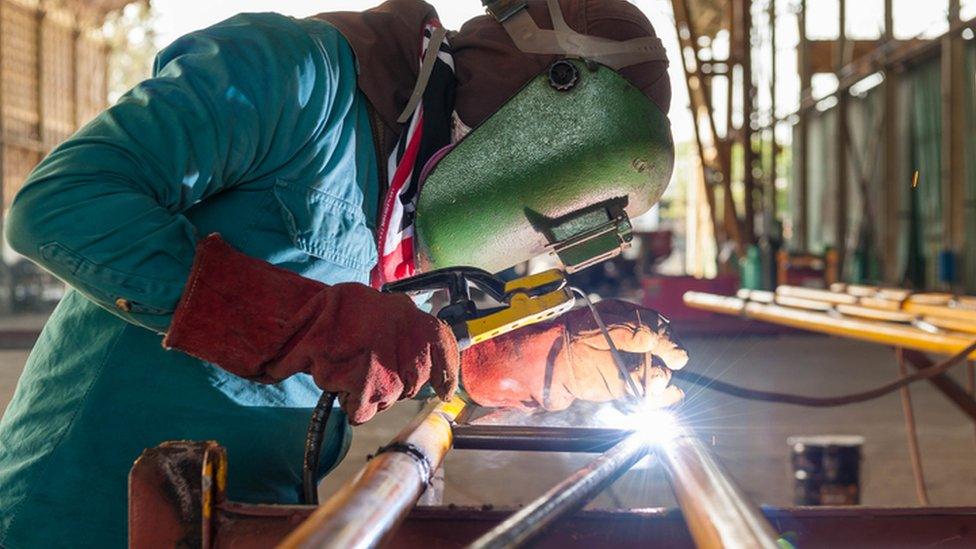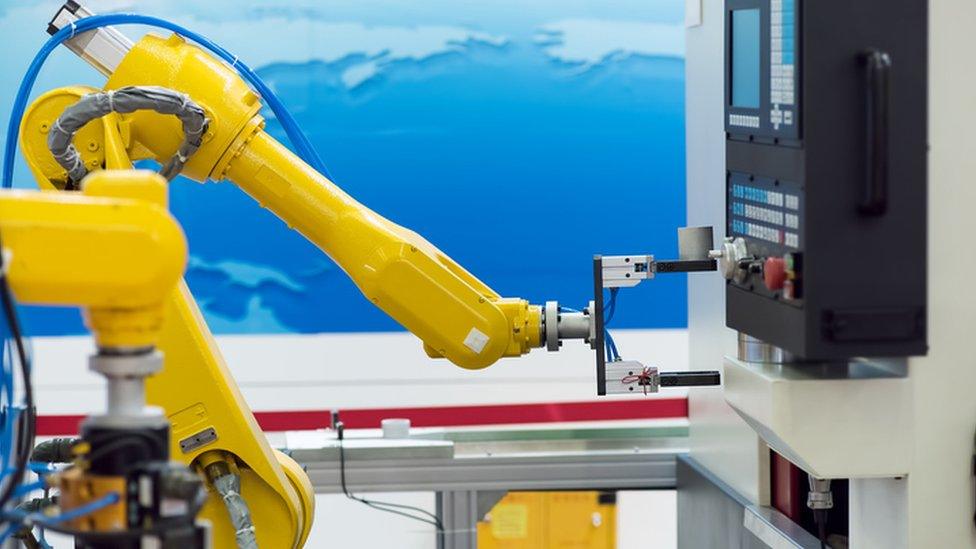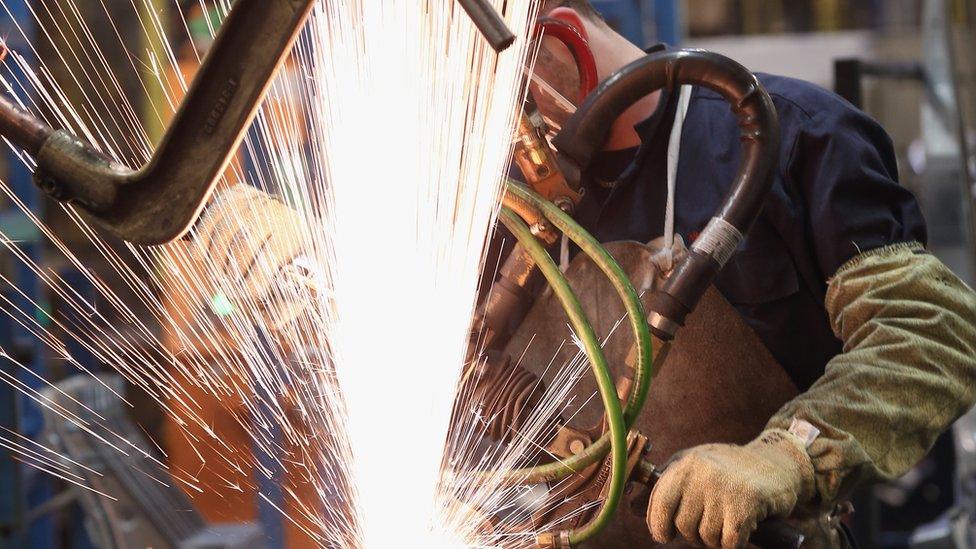Picking winners or backing losers?
- Published

Industrial policy. You can see it as a re-heating of previous policies, and re-branding of existing priorities.
Or you can be more generous to Theresa May and her government, as she and it set out a 12-week consultation, seeing this as a process of asking the most fundamental questions about what kind of country the United Kingdom intends to be.
It's already been widely noted that the prime minister has broken with four decades of Conservative Party orthodoxy in saying that government should not step back.
She says it should step up to support business, at least where business can "self-organise" to lead change.
Robotics
What does that mean? There are choices here. Big choices. Potentially big trade-offs.
For a start, is this about government picking winners - the sectors and the businesses that could shape tomorrow? That's got a bad reputation in Britain, though it's more accepted in other countries?
Is it about government standing behind ailing industries? Those, for instance, that have the strongest political lobbying power, or of particular symbolic power?
The words "industrial policy" suggest an emphasis on manufacturing, rather than embracing a post-industrial economy.

Or is it about government helping the transition from declining industries to the rising sectors of the economy, and doing so through help with re-skilling workers? These rising sectors tend to have less political clout or lobbying power.
If it is about new sectors, what will this industrial policy have to say about automation and robotics, which are set to transform our understanding and expectation of work?
Even if we pick the right industries for the future, they may not be the big employers. Life sciences, for instance.
Hotspots
As Britain exits the European single market, how much can industrial policy do to build up substitution - that is, UK-produced goods and services replacing the ones imported from the EU?
Or does Theresa May's government intend to expose British firms to wider international trade, emphasising exporters over substitution, however much pain that might inflict in the transition?
Is this about maximising growth, and putting resource where there is the best opportunity to compete internationally?
Or is industrial policy primarily a regional policy, intended to rebalance the economy away from those hotspots, to those who have found that the mighty economic forces of recent decades - and the government choices linked to them - have left more of a chill?
Tax breaks
A clue to answering that is that the policy is being launched with a UK cabinet meeting in the north of England, while ministers announce funds to improve conference facilities in Blackpool.
Two Whitehall ministers are in Scotland to emphasise that, although much of this is devolved, it still applies north of the border.
Whitehall does not control the skills agenda or infrastructure priorities in Scotland.
What it can do is influence investment through the tax system. It already does so with targeted tax breaks for the film industry and digital games, and it has done so for 40 years of North Sea oil and gas.
Energy looks like being a key sector for Scotland in this industrial policy - both hydrocarbons and renewable. And already, there's a tension between the strategic role of investing in green power and the government preference for pulling back on the cross-subsidies that help its development.
The ministers' visits emphasise skills in the hospitality sector (which has depended on EU migrant workers' skills), Scotland's university science base (likewise), and a highly successful leather exporting business in Renfrewshire.
The new economy? Hardly. Trading in leather goes a long way back, somewhere close to the stone age.
- Published23 January 2017
